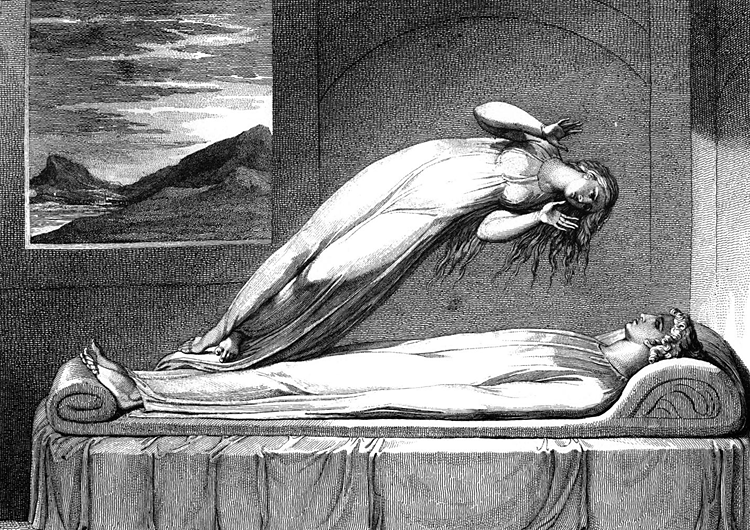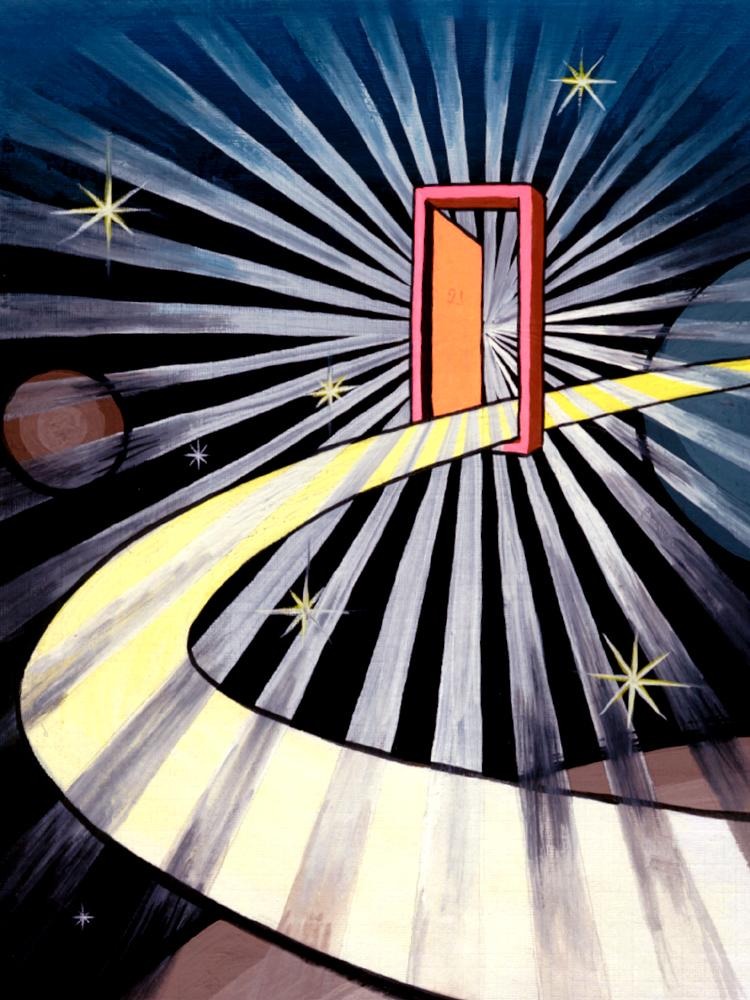
Restoration of Truth Series: The State of the Dead
by Nathan Lawrence
Hoshana Rabbah Biblical Resources at www.HoshanaRabbah.org
Repent therefore and be converted, that your sins may be blotted out, so that times of refreshing may come from the presence of the Lord, and that He may send Yeshua the Messiah, who was preached to you before, whom heaven must receive until the times of restoration of all things, which Elohim has spoken by the mouth of all His holy prophets since the world began. (Acts 3:19–21, emphasis added)
It has been the common belief among nearly all Christians universally for nineteen hundred years that upon physical death a person’s soul immediately separates from their body and lives immortally either in heaven or in hellfire. In this brief study we will show incontrovertible proof that this cornerstone of Christian orthodoxy needs to be reexamined, and that the idea of the soul being immortal is of non-biblical (even Satanic) origination. Admittedly, this is not a salvational issue, but this belief is detrimental to one’s biblical understanding, since it leads to a skewed view of several other key biblical truths. This belief also hinders the advancement of YHVH’s kingdom as we will also demonstrate below. If you are a bold truth seeker, and not timid about questioning sacred cow beliefs then read on.
Does Man Possess an Immortal Soul?

This question of the immortality of the human soul should not be passed over quickly. Why? Because nearly all of the world’s false, non-biblical religions believe that each person possesses an immortal soul that lives on after death. To the questioning mind, shouldn’t the universality of this idea be suspect? Therefore, shouldn’t it behoove the assiduous truth-seeker to know the origination of this belief? Is it biblical or from some other source? These are excellent questions that we will answer below. The answers affects everyone!
The Source Is Not Elohim!
The first place in the Bible that the immortality of the soul concept is mentioned is in Genesis chapter three—literally at the beginning of man’s existence on earth, and the source of this idea was not YHVH Elohim, the Creator of man. Rather it was from the spiritual entity Yeshua the Messiah labeled as “the father of all lies” (John 8:44), Satan the devil, the serpent (Rev 12:9).

We pick up the story of how the immortal soul idea come into man’s initial awareness way back in the Garden of Eden at the tree of the knowledge of good and evil, where the serpent (i.e., Satan the devil; Rev 12:9), in enticing the woman to eat from the forbidden tree, told her that “you shall not surely die” even though YHVH had told Adam and Eve that they would die if they ate of it (Gen 2:8–9; 3:1–6). Was the serpent the originator of the doctrine of the immortality of the soul, According to the Bible, the answer is yes! As we shall now discover, this concept was not even an aspect of Old Testament theology.
An Analysis of the Hebrew Word Nephesh
Upon a careful analysis of all the Bible scriptures on this subject from both the Tanakh (i.e., Old Testament or OT) and Testimony of Yeshua (i.e., New Testament or NT), a truth becomes clear. Man possesses a soul, but nowhere does Scripture state that his soul is immortal. An understanding of how Scripture uses the Hebrew word nephesh (in the OT) and the Greek word psuche (in the nT)—both translated as “soul” in our Bibles—reveals that notion that the soul of man is immortal is to overlay the Word of Elohim with a concept that is foreign to biblical truth. This is because neither the OT nor the NT indicate that the soul is immortal, but rather that it is simply that part of a human that defines who one is. That is, it is merely one’s personality, character, emotional make-up, mental capabilities and the volitional or will part of a person.
Let’s now examine the actual meanings of the words nephesh and psuche. According to The Theological Dictionary of the New Testament (volume 9, p. 617ff), Scripture equated nephesh with the breath of man, the blood of man and the person of man. In the latter, it is used as a term for the total nature of man, for what he is, not just what he has. The same cannot be said of the spirit, heart or flesh part of man. The classical text in Genesis 2:7 clearly expresses this truth when it calls man in his totality a nephesh hai-yah or “a living being” (NKJV) or “a living soul” (KJV). The nephesh has no existence apart from the body. Hence the best translation in many instances is “person”comprised in corporeal (relating to the physical body, as opposed to one’s spirit) reality. Nephsesh can denote what is most individual in human nature, namely, the ego (ibid. p. 620).
Nephesh as used in the OT can also be an expression of the will. The nepheshis manifest in orientation to an object, whether this be the elemental realities of hunger and thirst on the one side (Deut 12:15,20; 1 Sam 2:16, etc.) or the lofty aspiration of yearning for Elohim on the other (Ps 103:1). Nephesh can refer to the sex drive (Gen 34:3; Jer 2:24), to hatred (Ps 27:12), to pain and sorrow (1 Sam 1:10; 30:6), to the will (Gen 23:8), and the supreme striving of man for Elohim (Isa 26:9; Ps 63:1; 84:2, etc.) (ibid., pp. 621–622).
Based on these definitions of the word nephesh as used in the OT, we see that the Bible refers to the soul of man as the mind, the will and emotions. It refers to who one is as a person or one’s personality. It is in this Hebraic sense that the writers of the NT would be using the term soul (e.g., 1 Thess 5:23). There is no reason to assume that the apostolic writers referred to man’s soul in anything other than Hebraic terms to the exclusion of any Hellenistic (pagan Greek) concepts of the immortal soul.
Further Study of the Hebrew word Nephesh/Soul from Various Lexicons
The Theological Dictionary of the New Testament is not the only expert lexical source that reveals the meaning of the word soul as used in the Scriptures and debunks the notion that it is immortal. The following is a list of several other notable lexicons that contain similar information.
Continue reading





